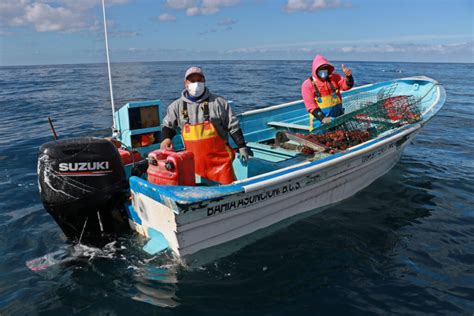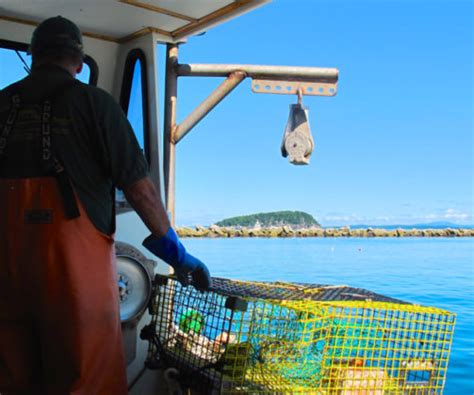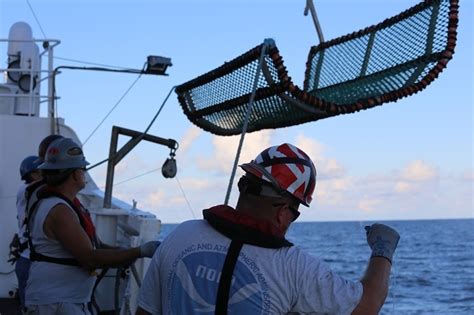Oceanography, the study of the oceans and their ecosystems, has seen remarkable advancements in recent years. This article delves into the latest studies and insights shaping our understanding of marine environments. From groundbreaking technological developments to key findings on ocean currents and climate regulation, we explore how these elements interact to impact marine biodiversity and conservation efforts. As we address the effects of climate change and human activities on oceans, we also highlight the significance of deep-sea exploration and the crucial role of coral reefs. Join us as we examine marine protected areas and look ahead to future directio
tirfblog.com invites you to explore this topic thoroughly.
1. Recent Advancements in Oceanographic Technology
Oceanographic technology has made significant strides, dramatically improving our capacity to explore and understand the vast and complex marine world. Cutting-edge tools like autonomous underwater vehicles (AUVs) and remotely operated vehicles (ROVs) have revolutionized deep-sea exploration, enabling scientists to gather data from previously unreachable areas. These technologies facilitate high-resolution mapping of the ocean floor and detailed observations of marine life in their natural settings.
Moreover, progress in satellite remote sensing has enhanced our capacity to monitor extensive oceanographic events, like sea surface temperatures and chlorophyll levels, in real time. This information is vital for analyzing ocean currents, weather patterns, and the effects of climate change.
Advanced sensor technology has revolutionized our comprehension of ocean chemistry and physical characteristics. These sensors, capable of measuring parameters such as salinity, pH, and dissolved oxygen with unparalleled precision, provide an in-depth understanding of ocean systems. This technological advancement empowers scientists to more effectively…

2. Key Findings from Recent Oceanography Studies
Recent oceanography studies have brought to light several key findings that enhance our comprehension of marine ecosystems. A noteworthy discovery is the identification of previously unknown species and ecosystems in the deep sea. Advanced submersible technologies have enabled researchers to explore extreme depths, uncovering a rich tapestry of biodiversity that refutes prior assumptions regarding the boundaries of life in the ocean.
Ocean currents play a vital role in regulating global climate. They act as a conveyor belt, transporting heat and nutrients across the globe, influencing weather patterns and sustaining marine life. Changes in these currents, caused by climate change, could have significant impacts on both ocean ecosystems and human societies.
Recent research has highlighted the detrimental effects of microplastics on marine life. Studies have revealed that a diverse range of marine species, from microscopic plankton to massive whales, are ingesting these tiny plastic particles. This ingestion poses a serious threat, potentially disrupting food chains and harming the overall health of marine ecosystems. The findings strongly emphasize the immediate need for comprehensive solutions to tackle the issue of plastic pollution.
A significant discovery is the resilience of certain marine ecosystems, like coral reefs, to environmental pressures. Although many reefs are heavily affected by climate change, specific locations have demonstrated remarkable recovery, offering hope for conservation initiatives. These studies underscore the importance of focused conservation strategies to safeguard and revitalize essential marine habitats.

3. The Role of Ocean Currents in Climate Regulation
Ocean currents are essential for regulating Earth’s climate. They act like a global conveyor belt, transporting warm water from the equator towards the poles and cold water from the poles towards the equator. This continuous movement helps to distribute heat evenly across the planet, moderating temperatures and balancing extreme climates in different regions.
The Gulf Stream, for example, transports warm water from the Caribbean to the North Atlantic, exerting a considerable influence on Western Europe’s climate. Conversely, cold currents like the California Current chill the western coast of North America, impacting regional weather patterns and marine ecosystems.
Variations in these currents, fueled by influences like global warming and melting polar ice, can disrupt this delicate equilibrium, resulting in altered weather patterns and transformations within marine ecosystems. Comprehending these dynamics is essential for forecasting the consequences of climate change and devising effective adaptation and mitigation measures.

4. Marine Ecosystems: Biodiversity and Conservation
Marine ecosystems exhibit an astounding diversity, supporting a wide range of species from microscopic plankton to colossal whales. This biodiversity is vital for the health and stability of the ocean environment. Coral reefs, mangroves, and seagrass beds stand out as particularly productive and diverse ecosystems, offering critical habitat and sustenance for a multitude of marine organisms.
Protecting these ecosystems from the many threats they face requires significant conservation efforts. Overfishing, pollution, and climate change pose major challenges to marine biodiversity. Coral reefs, for example, are especially susceptible to rising sea temperatures and ocean acidification, which can cause coral bleaching and the loss of reef species.
Marine ecosystem conservation efforts encompass the establishment of marine protected areas (MPAs), which serve as vital safeguards for critical habitats, enabling ecosystems to recover and flourish. Furthermore, implementing sustainable fishing practices and pollution control measures is crucial in mitigating human impact on marine environments. Through a focused approach on these conservation strategies, we can contribute to the preservation of the diverse and abundant life within the oceans.
5. Impact of Climate Change on Marine Ecosystems
Climate change presents a grave danger to marine ecosystems, its repercussions cascading through the ocean’s intricate network of life. Elevated sea temperatures trigger widespread coral bleaching, a phenomenon where stressed corals expel their symbiotic algae, resulting in diminished biodiversity and the deterioration of reef structures. Warming waters also alter the distribution of marine species, disrupting food chains and causing shifts in predator-prey relationships.
Ocean acidification, caused by the absorption of increased carbon dioxide, impairs the ability of marine organisms such as shellfish and corals to construct calcium carbonate structures. This weakening of shells and skeletons has negative consequences for species that depend on these organisms for sustenance and shelter.
Furthermore, the melting of polar ice caps contributes to rising sea levels and alterations in ocean circulation patterns, with cascading effects on marine ecosystems. Modifications to ocean currents can disrupt nutrient distribution and influence weather patterns, ultimately affecting marine habitats and the distribution of marine species. Addressing these consequences necessitates a comprehensive strategy to mitigate climate change and safeguard vulnerable marine environments.
6. Human Activities and Their Influence on Oceans
Human activities exert a profound and multifaceted influence on the oceans, impacting marine ecosystems in numerous ways. Overfishing stands out as a critical concern, leading to the depletion of fish stocks and disrupting the delicate balance of marine food chains. Unsustainable fishing practices, including trawling, inflict damage on seabeds and vital habitats, resulting in lasting ecological consequences.
Pollution poses a significant threat to marine ecosystems. Plastic waste, including microscopic microplastics, enters the oceans, endangering marine life through ingestion and entanglement. Chemical contaminants, such as pesticides and heavy metals, accumulate in the marine food web, jeopardizing the health of both marine organisms and humans who consume seafood.
Coastal development and land reclamation worsen the problem by destroying essential habitats such as mangroves, salt marshes, and coral reefs. These ecosystems act as crucial buffers against erosion and provide essential services, including carbon sequestration and nursery grounds for marine life.
Furthermore, human activities release greenhouse gases, contributing to global warming. This warming impacts ocean temperatures, acidifies the water, and raises sea levels. The combined consequences of these actions highlight the urgent need for…
7. Deep-Sea Exploration and its Significance
Deep-sea exploration has transformed our knowledge of the ocean’s most enigmatic and unreachable areas. Scientists utilize cutting-edge technologies, including remotely operated vehicles (ROVs) and autonomous underwater vehicles (AUVs), to venture into the deep sea, revealing previously undiscovered species and ecosystems.
This exploration is crucial for several reasons. Firstly, the deep-sea environment harbors a rich tapestry of biodiversity, featuring unique organisms that have adapted to survive in extreme conditions like high pressure and low temperatures. Uncovering these species aids us in understanding the intricacies of evolutionary processes and the distribution of biodiversity in extreme environments.
Moreover, deep-sea exploration deepens our understanding of geological processes. Investigating underwater volcanoes, hydrothermal vents, and seamounts sheds light on the Earth’s tectonic activity and mineral resources. These discoveries can also aid in evaluating the potential effects of natural hazards and climate change on deep-sea ecosystems.
Furthermore, deep-sea research holds significant implications for biotechnology, as numerous deep-sea organisms generate unique compounds with potential applications in the medical and industrial fields. In conclusion, deep-sea exploration is paramount for a
8. The Importance of Coral Reefs in Marine Ecosystems
Coral reefs are essential and incredibly diverse ecosystems in the ocean, often called the “rainforests of the sea.” They provide a home and food for a huge variety of marine life, including fish, invertebrates, and algae. These vibrant ecosystems play a crucial role in marine biodiversity, with some reefs supporting thousands of species within a limited space.
Coral reefs, beyond their vital ecological role, provide invaluable benefits to humankind. They serve as natural barriers, shielding coastlines from erosion caused by storm surges and waves, thus mitigating the effects of severe weather events on coastal communities. Moreover, coral reefs contribute to local economies through tourism and fisheries, sustaining the livelihoods of millions worldwide.
Coral reefs, however, are incredibly sensitive to changes in their environment. Rising sea temperatures, ocean acidification, and pollution pose significant threats, leading to coral bleaching and degradation. Protecting and restoring these reefs is critical for preserving marine biodiversity and ensuring the continued benefits they provide to our ecosystems. Conservation efforts, such as establishing marine protected areas and reducing carbon emissions, are essential for safeguarding these valuable ecosystems for future generations.
9. Marine Protected Areas: Success Stories and Challenges
Marine Protected Areas (MPAs) have proven to be invaluable tools for safeguarding marine biodiversity and improving the health of ocean ecosystems. Numerous success stories highlight the positive impacts of MPAs. For example, the Great Barrier Reef Marine Park in Australia has witnessed significant recovery in coral cover and fish populations thanks to effective protection and management measures. Similarly, the Galápagos Marine Reserve has successfully preserved unique species and habitats, contributing to the overall well-being of the marine ecosystem.
Despite their promise, challenges persist in the implementation and management of Marine Protected Areas (MPAs). A primary concern is securing sufficient funding and resources to enable effective enforcement and monitoring. Insufficient oversight can lead to the continuation of illegal fishing and other human activities that threaten these protected zones. Furthermore, MPAs must be strategically designed to mitigate the impacts of climate change, which can significantly alter marine ecosystems and potentially hinder conservation efforts.
Achieving a balance between conservation objectives and the requirements of local communities presents another challenge. Successful Marine Protected Areas (MPAs) necessitate collaboration with stakeholders, such as fishermen and tourism operators, to establish sustainable practices that promote both ecological well-being and economic prosperity. Ongoing investment in research, management, and community engagement is crucial for addressing these challenges and ensuring long-term success in marine conservation efforts.
10. Future Directions in Oceanographic Research
Future oceanographic research will expand upon recent progress and tackle the new challenges facing marine science. A key focus will be developing more advanced technologies for gathering and analyzing data. Innovations such as autonomous underwater vehicles, equipped with cutting-edge sensors and real-time data transmission, will improve our ability to observe and study deep-sea environments and the dynamic processes within the ocean.
Researchers are stressing the importance of integrated, multidisciplinary approaches to gain a deeper understanding of the intricate relationships within marine ecosystems. This involves merging oceanographic data with climate models to forecast how alterations in the environment will affect marine life and global climate systems.
Exploring the vast potential of marine genetic resources is another crucial avenue of research. The rapid advancements in genomics and biotechnology open up exciting possibilities for identifying novel compounds and organisms with significant applications in medicine and industry.
Last but not least, a rising tide of global cooperation and data sharing is emerging. Through international partnerships and open-access databases, the exchange of knowledge and resources will be greatly facilitated. This will empower us to address global marine challenges more effectively and guide conservation strategies with enhanced insight.
In conclusion, oceanography offers profound insights into the complexities of marine ecosystems and their critical role in regulating the Earth’s climate. Recent advancements in technology and research have expanded our understanding of deep-sea environments, biodiversity, and the impacts of climate change. However, challenges remain, including the need for effective conservation strategies and global collaboration. By continuing to explore and protect our oceans, we can ensure the preservation of these vital ecosystems and their invaluable contributions to global health and stability.
tirfblog.com

